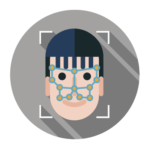The most populous county in Washington state has voted unanimously to restrict the use of facial recognition technology by all local government agencies, with the council’s executive saying he is supportive of the bill and will sign it into law.

In a recent report from CNN, the King County Council is said to have been at least partially inspired to do so by a December 2019 study from the National Institute of Standards and Technology (NIST) that revealed a large number of the facial recognition algorithms in use have a high tendency to misidentify people of color far more often than middle-aged white men.
“The use or misuse of these technologies has potentially devastating consequences which the new ordinance will help to prevent,” legislation sponsor Jeanne Kohl-Welles said in a statement. Kohl-Welles went on to add that the use of the technology would be limited to trying to identify missing children.
Critics of the use of facial recognition technology — with the American Civil Liberties Union (ACLU) among the most vocal — point to the NIST study’s findings, as well as a number of well-publicized cases of its abuse by both private companies and some law enforcement agencies.
“Today’s unanimous vote to adopt a facial recognition ban is a huge win for the residents of King County and an important step forward in the effort to stop government use of this harmful and racist technology,” said Washington ACLU member Jennifer Lee.
King County, which is home to more than 2 million people and includes Seattle, is the latest local government in the US to place some sort of ban on facial recognition. State legislation limiting the use of biometrics has also been growing in popularity (with Illinois’ BIPA leading the way), with calls for a federal ban gaining momentum in the last year.
“The use of this technology is invasive, intrusive, racially biased and full of risks to fundamental civil liberties,” said King County Council member Dave Upthegrove. “I am proud to sponsor this ban which is supported by local community groups, public defenders, immigrants’ rights advocates, racial justice organizations, workers’ rights groups, privacy advocates, and technologists,” he added.
Source: CNN
–
June 8, 2021 – by Tony Bitzionis






Follow Us